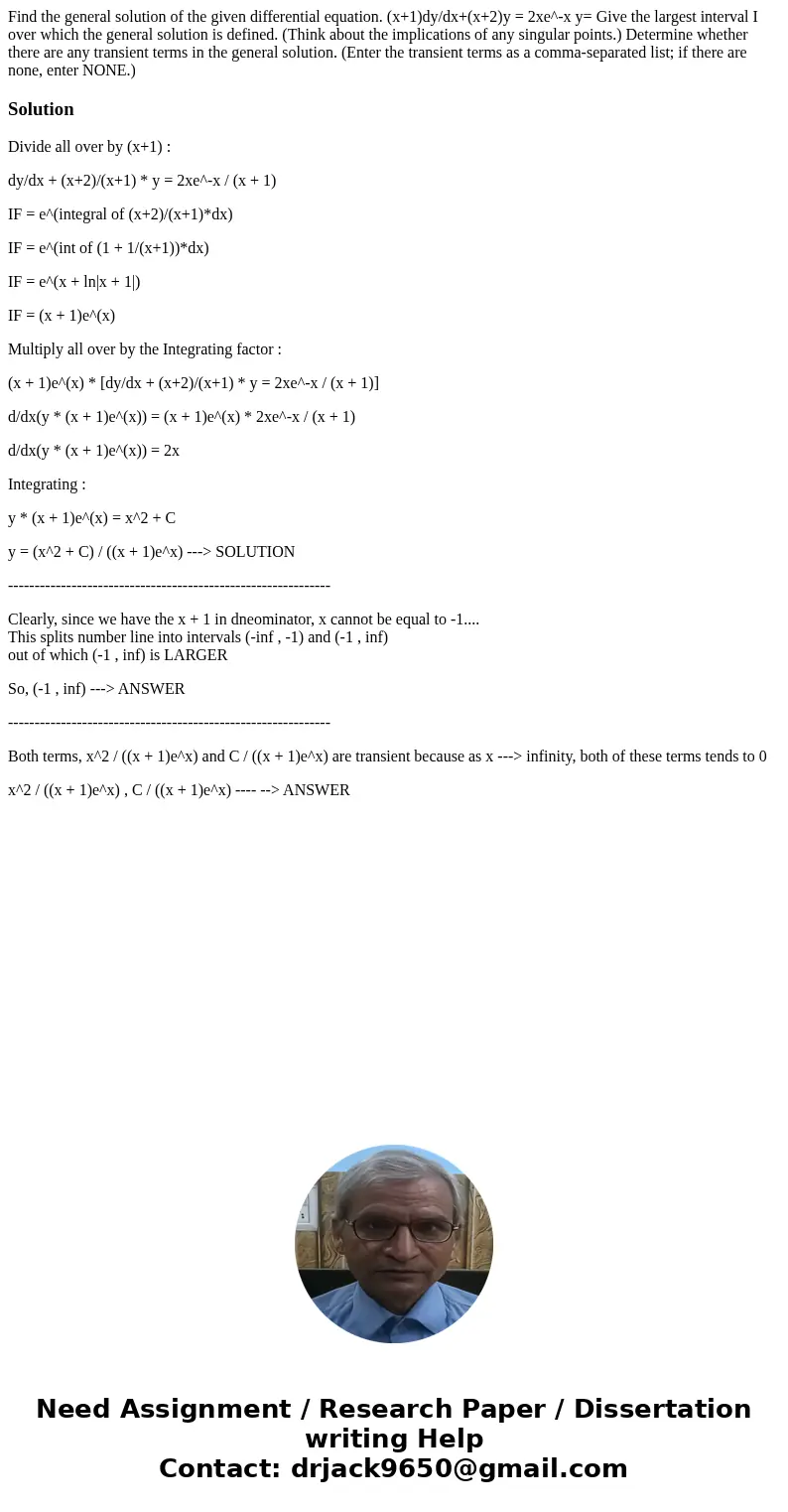Find the general solution of the given differential equation
Solution
Divide all over by (x+1) :
dy/dx + (x+2)/(x+1) * y = 2xe^-x / (x + 1)
IF = e^(integral of (x+2)/(x+1)*dx)
IF = e^(int of (1 + 1/(x+1))*dx)
IF = e^(x + ln|x + 1|)
IF = (x + 1)e^(x)
Multiply all over by the Integrating factor :
(x + 1)e^(x) * [dy/dx + (x+2)/(x+1) * y = 2xe^-x / (x + 1)]
d/dx(y * (x + 1)e^(x)) = (x + 1)e^(x) * 2xe^-x / (x + 1)
d/dx(y * (x + 1)e^(x)) = 2x
Integrating :
y * (x + 1)e^(x) = x^2 + C
y = (x^2 + C) / ((x + 1)e^x) ---> SOLUTION
-------------------------------------------------------------
Clearly, since we have the x + 1 in dneominator, x cannot be equal to -1....
This splits number line into intervals (-inf , -1) and (-1 , inf)
out of which (-1 , inf) is LARGER
So, (-1 , inf) ---> ANSWER
-------------------------------------------------------------
Both terms, x^2 / ((x + 1)e^x) and C / ((x + 1)e^x) are transient because as x ---> infinity, both of these terms tends to 0
x^2 / ((x + 1)e^x) , C / ((x + 1)e^x) ---- --> ANSWER

 Homework Sourse
Homework Sourse